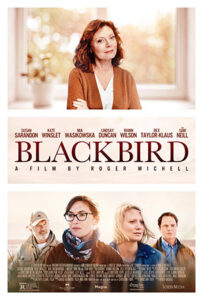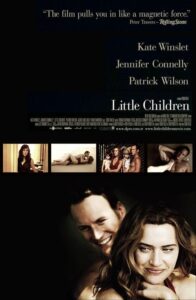 Sad memories are the worst kind. Of all the memories, these are the ones that can flip the switch of a day at a moment’s notice. It could be the waft of a familiar fragrance once worn by a significant other who has since left your life. Or it might be a forgotten song that pops up on a playlist, instantly transporting you to the time and place you first heard it. Or perhaps it’s a photo, once a bookmark now wedged between a pair of books, that falls to the floor when reorganizing a room and evokes a memory you weren’t prepared to face on a particular day. If we could rid ourselves of our sad memories so that we no longer need to experience the pain associated with them, would we? Some of us would do this in a heartbeat, while others would never choose to do something so drastic. Most of us lie in between, and our resiliency to these emotional triggers places us somewhere along that spectrum. Michel Gondry’s (The Green Hornet, Be Kind Rewind) universally revered cult classic Eternal Sunshine of the Spotless Mind.
Sad memories are the worst kind. Of all the memories, these are the ones that can flip the switch of a day at a moment’s notice. It could be the waft of a familiar fragrance once worn by a significant other who has since left your life. Or it might be a forgotten song that pops up on a playlist, instantly transporting you to the time and place you first heard it. Or perhaps it’s a photo, once a bookmark now wedged between a pair of books, that falls to the floor when reorganizing a room and evokes a memory you weren’t prepared to face on a particular day. If we could rid ourselves of our sad memories so that we no longer need to experience the pain associated with them, would we? Some of us would do this in a heartbeat, while others would never choose to do something so drastic. Most of us lie in between, and our resiliency to these emotional triggers places us somewhere along that spectrum. Michel Gondry’s (The Green Hornet, Be Kind Rewind) universally revered cult classic Eternal Sunshine of the Spotless Mind.
Continue reading Eternal Sunshine of the Spotless Mind (2004)
 In my two most recent reviews (
In my two most recent reviews ( Little Children is a somewhat misleading name for a movie that doesn’t have much to do with children or anyone physically small. While a couple of kids are in this movie, they are non-descript and serve as props more than anything else. The leads are all middle-aged adults, though their undisciplined and erratic behavior suggests they are anything but. The protagonists act as entitled brats, while the antagonists are fundamentally flawed. It becomes apparent that we are on a collision course between all involved in a film whose setting is present-day New England, but that very well could be in any town in America.
Little Children is a somewhat misleading name for a movie that doesn’t have much to do with children or anyone physically small. While a couple of kids are in this movie, they are non-descript and serve as props more than anything else. The leads are all middle-aged adults, though their undisciplined and erratic behavior suggests they are anything but. The protagonists act as entitled brats, while the antagonists are fundamentally flawed. It becomes apparent that we are on a collision course between all involved in a film whose setting is present-day New England, but that very well could be in any town in America.
 Ammonite, Francis Lee’s (God’s Own Country) tells the familiar of something uniting us all: the internal need to find human connection, even when we externally live a life that suggests otherwise. We often seek out other humans to fulfill some of our needs inside of us, though we often have different capacities. As I write this review during the Coronavirus pandemic, this innate truth could not be more evident. The main difference between now and the past is that we can connect with others through face-to-face video technology, phone calls, text messages, email, social media, and other platforms. But in 1840 Europe (the time and setting of Ammonite), the person had to be physically near you, outside of the occasional letter that might or may not arrive in the mail. There certainly is real-time interaction if you and the other person are in the exact location. Our connections also aren’t authentic, and we live a fabricated existence because it beats being alone. So when we can connect with someone (on whatever mutually agreed upon level), it quickly becomes something we don’t want to let go of. And that is essentially the story of Ammonite.
Ammonite, Francis Lee’s (God’s Own Country) tells the familiar of something uniting us all: the internal need to find human connection, even when we externally live a life that suggests otherwise. We often seek out other humans to fulfill some of our needs inside of us, though we often have different capacities. As I write this review during the Coronavirus pandemic, this innate truth could not be more evident. The main difference between now and the past is that we can connect with others through face-to-face video technology, phone calls, text messages, email, social media, and other platforms. But in 1840 Europe (the time and setting of Ammonite), the person had to be physically near you, outside of the occasional letter that might or may not arrive in the mail. There certainly is real-time interaction if you and the other person are in the exact location. Our connections also aren’t authentic, and we live a fabricated existence because it beats being alone. So when we can connect with someone (on whatever mutually agreed upon level), it quickly becomes something we don’t want to let go of. And that is essentially the story of Ammonite.
 Suppose you watched season 1 of HBO’s True Detective, and you were as much of a fan of the six-minute single-shot shootout scene that ended episode four (titled Who Goes There) as I was. You might like John Hillcoat’s (
Suppose you watched season 1 of HBO’s True Detective, and you were as much of a fan of the six-minute single-shot shootout scene that ended episode four (titled Who Goes There) as I was. You might like John Hillcoat’s (